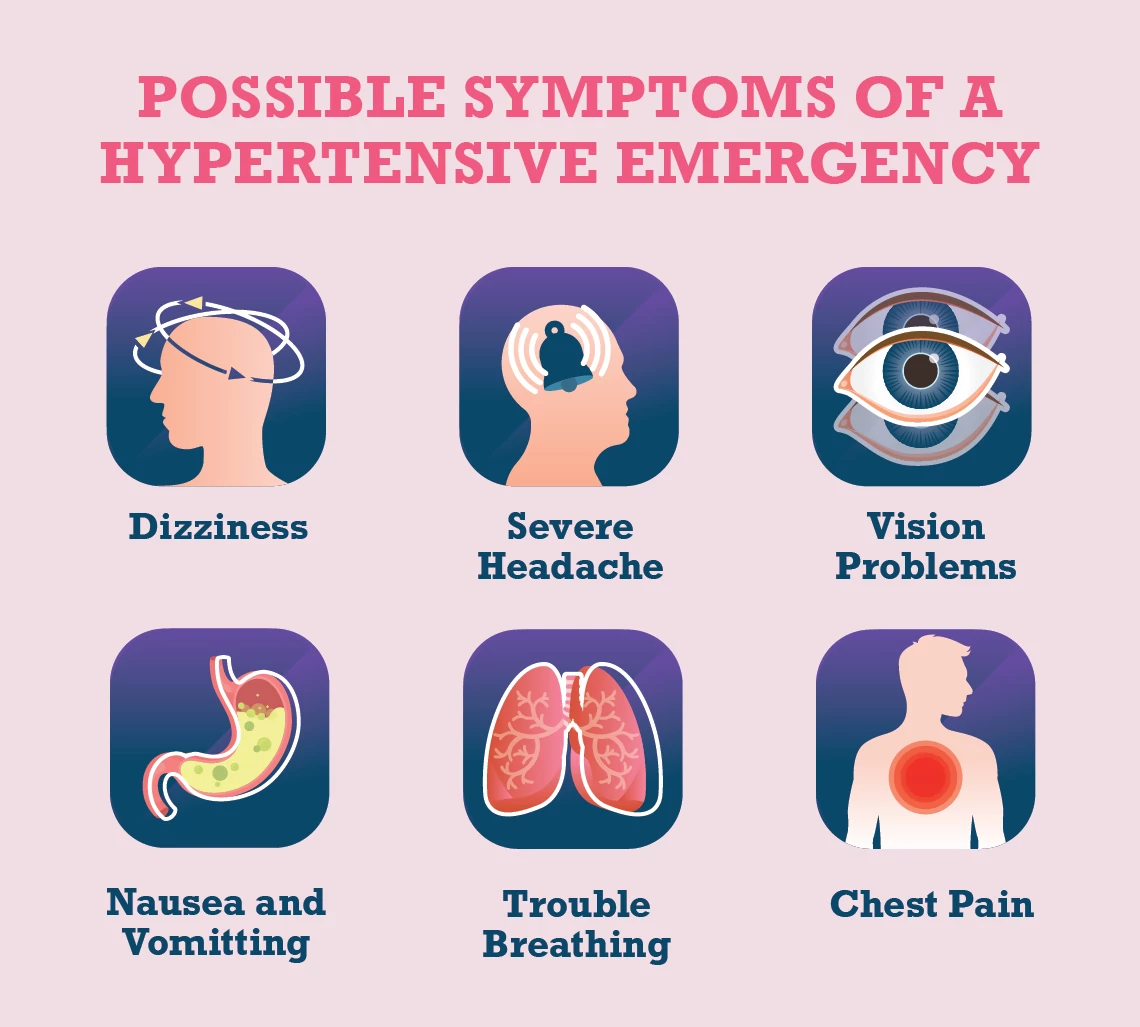Hypertension

Hypertension, or high blood pressure, is defined as a consistent systolic blood pressure (SBP) of ≥ 130 mm Hg or a diastolic blood pressure (DBP) of ≥ 80 mm Hg. It is a common condition affecting nearly half of adults, often without noticeable symptoms, but it significantly increases the risk of heart attack, stroke, kidney disease, and other complications.
Types of Hypertension
1. Primary Hypertension:
• The most common type, with no specific identifiable cause.
• Influenced by genetics, lifestyle, and environmental factors.
2. Secondary Hypertension:
• Caused by an underlying condition such as:
• Kidney disease.
• Obstructive sleep apnea.
• Hormonal disorders (e.g., primary aldosteronism).
• Certain medications or excessive alcohol intake.
Symptoms
Hypertension is often called the “silent killer” because it usually has no symptoms. However, severe or long-standing hypertension can lead to:
• Headaches or dizziness.
• Shortness of breath.
• Chest pain.
• Vision problems.
• Signs of complications such as heart failure or kidney damage.
Diagnosis
Hypertension is diagnosed with:
1. Blood Pressure Monitoring:
• Measurements taken at rest and over multiple visits.
• Use of home or ambulatory blood pressure monitoring for accuracy.
2. Tests to Assess Damage or Causes:
• Blood tests (e.g., kidney function, electrolytes).
• Urinalysis for protein or blood.
• ECG or echocardiography for heart function.
Treatment
Lifestyle Modifications:
Recommended for all patients with hypertension or high cardiovascular risk:
• Healthy Diet: Rich in fruits, vegetables, and low-fat dairy (DASH diet).
• Reduce Salt Intake: Limit to less than 1,500 mg/day.
• Physical Activity: Regular exercise, at least 150 minutes/week.
• Weight Loss: For overweight or obese individuals.
• Avoid Smoking and Excess Alcohol.
• Manage Stress and ensure adequate sleep (6+ hours per night).
Medications:
Chosen based on blood pressure levels, age, and other health conditions:
1. First-Line Options:
• ACE inhibitors (e.g., lisinopril).
• ARBs (e.g., losartan).
• Calcium channel blockers (e.g., amlodipine).
• Thiazide diuretics (e.g., chlorthalidone).
2. Combination Therapy:
• For severe or resistant hypertension.
3. Specific Cases:
• Beta-blockers for heart disease or arrhythmias.
• Aldosterone antagonists (e.g., spironolactone) for resistant hypertension.
Key Points to Remember
• Hypertension often has no symptoms but can lead to serious complications.
• Regular monitoring, lifestyle changes, and adherence to medications are critical.
• Early diagnosis and treatment significantly reduce risks of heart attack, stroke, and kidney failure.
References
1. Whelton PK, Carey RM, Aronow WS, et al. “2017 ACC/AHA Guideline for the Prevention, Detection, Evaluation, and Management of High Blood Pressure in Adults.” Hypertension.
2. Vasan RS, Beiser A, Seshadri S, et al. “Residual lifetime risk for developing hypertension.” JAMA.
3. Thomas SJ, Calhoun D. “Sleep, insomnia, and hypertension: current findings and future directions.” J Am Soc Hypertens.
